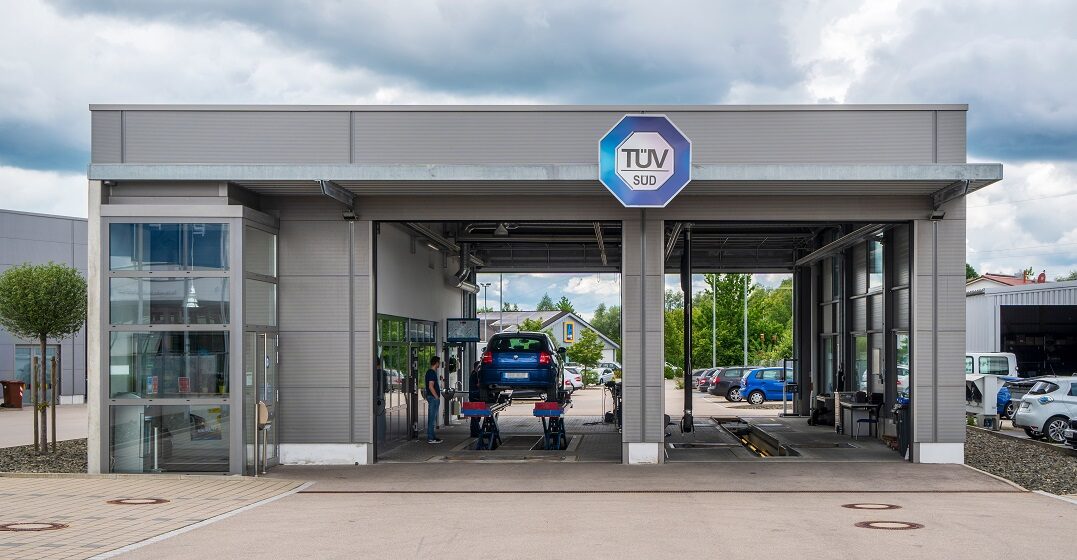Published on January 29, 2024

What is TÜV certification in Germany?

When navigating the complexities of German industry and safety standards, one name often stands out: TÜV. But what exactly is TÜV, and why does it hold such an esteemed position in Germany?
TÜV is short for Technischer Überwachungsverein, which translates to “Technical Inspection Association.” This organization plays a pivotal role in ensuring the safety, efficiency and quality of German products and services. Originating in the late 19th century, TÜV has evolved into an internationally recognized entity, setting benchmarks for compliance in a multitude of industries.
In this guide, we’ll delve into the functions and processes behind TÜV certification, as well as the benefits it brings to businesses and consumers alike. Whether you’re an expat in Germany or simply intrigued by this institution, understanding TÜV is key to grasping the country’s commitment to quality and safety.
In Germany, TÜV operates as an independent, neutral body that conducts inspections and certifications across a wide range of industries. From automotive safety to environmental protection, TÜV’s reach is vast and comprehensive.
The process typically begins with an assessment of a product or service against predetermined standards or legal requirements. These requirements ensure that everything from vehicles to electrical appliances adheres to strict safety and quality criteria.
For instance, in the automotive industry, one of the most familiar aspects of TÜV is the periodic vehicle inspection. Known as the Hauptuntersuchung (HU), this mandatory inspection is required for all vehicles in Germany and assesses their roadworthiness and environmental compatibility.
TÜV’s responsibilities are diverse, addressing various aspects of safety and quality across multiple industries. Some of the organization’s key functions include:
TÜV conducts thorough audits to ensure ongoing compliance with safety and quality standards. These are particularly crucial in high-risk industries, such as chemical manufacturing, healthcare and nuclear power.
TÜV offers expert guidance to businesses, helping them understand and adhere to complex regulatory requirements. This includes support in implementing quality-management systems, environmental protocols and safety measures.
By providing early testing and evaluation, TÜV assists manufacturers in developing products that meet safety and compliance standards, thereby reducing the risk of recalls or safety incidents.
TÜV offers a variety of training programs designed to enhance industry knowledge and expertise. These programs cover topics such as regulatory compliance, risk management and best practices in safety and quality.
Through these activities, TÜV not only ensures compliance with existing regulations but also helps shape a safer and more reliable industrial landscape in Germany and beyond.
TÜV, an acronym for Technischer Überwachungsverein, translates to “Technical Inspection Association.” This title signifies the organization’s core objective: to ensure technical safety and quality across diverse sectors. Originating in 1869 to address the safety of steam boilers in industrial settings, TÜV has significantly expanded its scope over the years.
TÜV certification covers a wide range of products and services. Key areas include:
TÜV certification benefits both businesses and consumers in the following ways:
TÜV certification ensures products and services meet high safety standards, protecting users and the environment.
It serves as a mark of quality, indicating reliable and well-made products.
TÜV helps businesses comply with both national and international regulations — and avoid legal issues and hefty fines.
Products with TÜV certification are generally more trusted by consumers, leading to potential gains in sales and brand loyalty.
TÜV certification can be a prerequisite for entering certain markets, particularly in Europe.
TÜV is more than a certification body in Germany; it’s a symbol of trust and a reflection of the country’s commitment to excellence. It’s about making sure that everything from your morning commute to your child’s playtime is safe, reliable and top-notch. If you are an expat in Germany learning German, knowing what the meaning of TÜV is, is very important and useful.